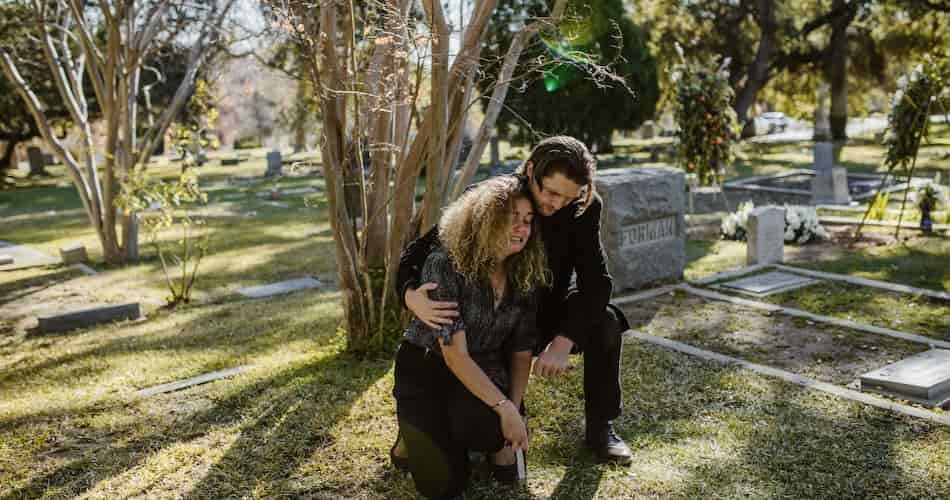Employers are responsible for taking care of their employees’ mental health. Some issues like bereavement leave are sensitive, and HR managers need to be aware of the latest bereavement leave update in California.
In this article, we will explain what bereavement leave is and what benefits employees have provided after the new update.
Refer to this comprehensive piece on bereavement leave if you’re looking for the basics on bereavement leave. This article will solely focus on the current bereavement leave update in California.
What is Bereavement Leave in California?
The simple definition of “bereavement” is “a period of grief or mourning after the death of a family member or a loved one”. Every person takes a different amount of time to heal from a loss like this. Therefore, employers must respect their employee’s right to take time off work due to such a loss.
Bereavement leave is taken by employees when any loved one dies. Previously, employees were not given job-protected bereavement leave in California. During COVID-19, many people lost their loved ones. Hence, a bill was passed to protect those in mourning. People hoped that if Assembly Bill- 2999 is approved, employees would get paid bereavement leave of up to 10 days.
Difference Between Bereavement and Funeral Leave
Bereavement and Funeral leave might sound the same, but they are not. The exact definition of both will also depend on your company’s policies. But if an employer only allows you 2-3 days off for funeral arrangements, then it will be a funeral leave. A bereavement leave is when the employer gives you additional time to grieve the loss of your loved one.
Bereavement Leave California 2022: AB-2999
So what is AB-2999? During COVID-19, AB-2999 was introduced to make job-protected bereavement leave mandatory in CA. The bill required employers to provide up to 10 days of unpaid bereavement leave. The leave must be completed within three months of the death.
To get this leave, the bill required employees to provide documentation regarding the death of a person, including “a death certificate, or written verification of death, burial, a published obituary, or memorial services from a mortuary, funeral home, burial society, crematorium, religious institution, or governmental agency.”
Is Bereavement Leave Paid or Unpaid Under AB-2999?
If an employer currently provides paid bereavement leave under the company’s policy, then AB-2999 does not take away that benefit. However, under this act, the leave is unpaid.
What Is the Latest Update on Bereavement Leave in California?
Under AB-1949, employers must provide up to 5 days of unpaid bereavement leave to employees employed at that company for at least 30 days before the leave begins. AB-2999 remains in committee as it couldn’t be amended during the pandemic.
California also has a federal law called the Family and Medical Act (FMLA) that guarantees workers unpaid off for around 12 weeks. It applies to businesses with more than 50 employees and those who have worked for more than 1 year at the firm. Under current law, FLMA cannot be used for the funeral or grief of a dead family member.
Is Bereavement Leave Mandatory to Be Paid in California?
No, bereavement leave is not paid under any of California’s laws. Private employers can have their own policy of paid bereavement leave.
Which Family Members Are Included in the Bereavement Leave Policy?
A long list of family members is covered under the bereavement leave policy. Immediate family members that are included in this policy are:
- Spouse
- Parents (biological, adoptive, foster, parent-in-law, step-parent, parent of a same-gender partner)
- Child (biological, adoptive, foster, step-child, child of a same-gender partner)
- Grandparents (grandfather and grandmother)
- Grandchildren
- Domestic partners
Other family members include:
- Siblings
- Aunts and uncles
- Nieces and nephews
- People with whom the employee has a close relationship
- Individuals who live in the same home as an employee
How to Ensure That Workers Are Not Abusing This Policy?
Many employers are against the approval of policies like bereavement leave. Once a bereavement leave policy is in place in your company, you can take adequate measures to ensure that employees are not abusing it. You can create time-off management, PTO, and employee leave tracker systems. Managers can create different categories of leaves in the leave tracker system. This will also make it easier for employees to manage the workflow and keep track of their leaves.
With AttendanceBot’s leave management features, you can do just that. With it, you can set up your own leave types ranging from PTO, Vacation, Sick Days, Paternity Leave, Jury Duty, Bereavement Leave, or any custom leave type. In addition, you can set up rules for leave accrual and define quotas for each leave type.
Final Thoughts
Employee satisfaction is necessary for a company’s growth and success. Benefits like bereavement leave are undoubtedly essential to provide job satisfaction to employees. HR managers and employers should take this matter seriously and in the future paid bereavement leave policy should be approved in CA. Unfortunately, we still don’t have proper laws applicable in all states that provide bereavement leave policies to both the private and public sectors.
